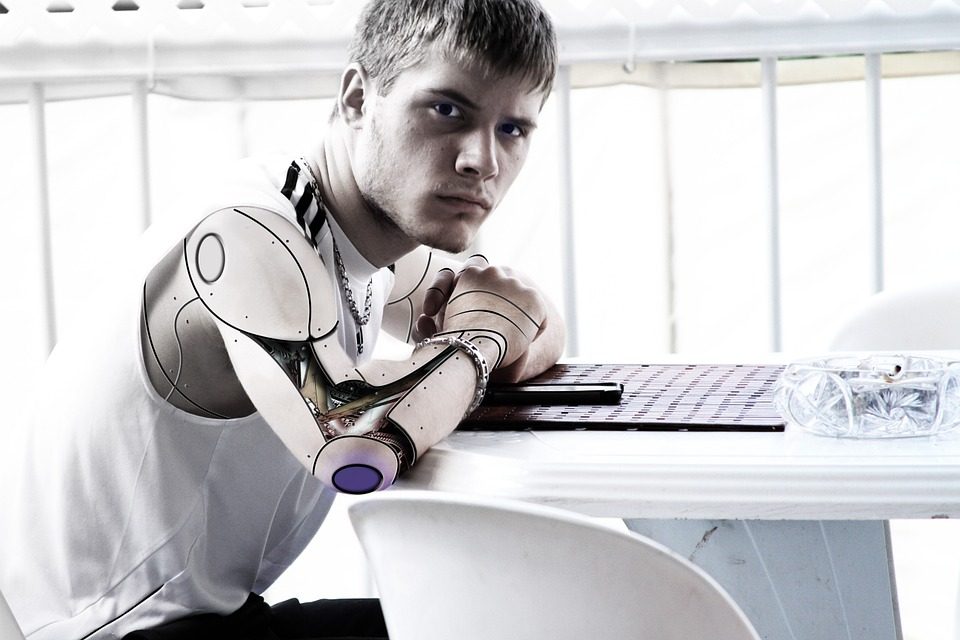Business
Artificial intelligence: How far is it from the human mind?
Could artificial intelligence someday eliminate the need for our efforts or professional services? This article takes a closer look at the dilemma.

The term “robot” first came up in the 1920s hit play, R.U.R., or Rossum’s Universal Robots by Karel Čapek. In an NPR discussion, science historian Howard Markel further identified that “robot” came from an Old Church Slavonic word, “rabota,” which means servitude or labor. Back then these computing machines, oftentimes humanoid in iron form, appeared in movies and plays serving humans. Fast forward to today, these robots have become so well-advanced that they even outperform humans.
A few years ago, Alpha Go defeated the champion Lee Se-dol, in a traditional Chinese game of Go. Alpha Go is a system built by Google’s DeepMind, which aims to solve problems through algorithms. These algorithms are capable of learning based on raw experience or data.
Alpha Go’s triumph brings back memories of world chess champion Garry Kasparov’s win over IBM’s Deep Blue in 1997. This new approach to programming raises various questions about what they intend to do.

Gerry Kasparov defeated IBM’s Deep Blue in a chess match in 1997. (Copyright 2007, S.M.S.I., Inc. – Owen Williams, The Kasparov Agency. Via Wikimedia Commons. CC-BY SA 3.0)
Have robots come to replace or even defeat humans?
Search Engine Journal noted that if there are professions that would replace humans with functional machines, it would be those that require heavy calculation. In fact, people working in the field of math, science, and engineering may already feel the presence of robots—what modern scientists call artificial intelligence systems.
A prize competition for American vehicles called the DARPA Robotics Challenge presented various solutions to complex human problems that could be solved with the aid of robots. The tasks included driving alone, where robots fared really well and came close to finishing the track.
Robots have also tried to penetrate human content creation. In 2012, BBC tackled the subjects of robots being able to produce poetry and novels. They were fairly successful, though they have never won any Booker prize. Authors then contend that artificial intelligence that aims to mimic human creativity cannot really make headway in a world where imagination trump analytics.
“You might find a lot of regurgitated platitudes but I can’t imagine a piece of software being capable of producing something that would stop you in your tracks. Not until we get truly intelligent computers,” said Alastair Reynolds, a science fiction author.
They may have dealt with complex mathematical computations, sure, but SEJ reiterates that the field of content creation will remain untouched by robots.
Where robots failed, humans triumphed
Beyond problems that require heavy computing, content creation deals with human emotions. It comes from something that stirs human interest and one that must provide value to its readers. Good content can connect with our intrinsic feelings, and this is an area that machines cannot replicate at the moment, and have yet to learn.
Nevertheless, we have tried to let machines write in an effort to explore the technologies available to us. In an attempt to boost websites, tools like article spinners have emerged in recent years. While these programs solved financial hurdles, they still lacked what readers call shareable content. It also missed on adding value to readers, one that can be considered a conversation starter, as summarized in another SEJ article.
Apple agrees with this matter and believes that humans can do better when it comes to content. They still want human content creators and editors who are passionate and knowledgeable to identify content that could pique human interest.
Facebook says otherwise. Computers, given the right metrics and demographics, can produce meaningful content posts as evidenced in its content-driven algorithm, Instant Articles. While algorithms can only function based on numbers and metrics, content creation still heeds emotional response. Still, both companies agree their audience matters.
Human curators matter
Harvard Business Review argues that in the field of writing, human editors triumph over machines and algorithms. The ability of human editors to personalize content provides a better reading experience where readers keep coming back. Great editors see beyond the clicks and are able to stir human emotions with content that can actually go viral.
It is true that machines perform jobs beyond our physical and intellectual capacities. Their ability to execute tasks faster, in repetitions and with much efficiency, is what sets them apart from us. Robots are also poised to occupy space and attention in various industries, now and in the future. Still, when it comes to matters that deal with the workings of the human mind, it is still a territory that’s not yet fully mapped by AI.

-

 Impact Investing2 weeks ago
Impact Investing2 weeks agoClimate Losses Drive New Risk Training in Agriculture Led by Cineas and Asnacodi Italia
-

 Crowdfunding1 week ago
Crowdfunding1 week agoReal Estate Crowdfunding in Mexico: High Returns, Heavy Regulation, and Tax Inequality
-

 Africa2 weeks ago
Africa2 weeks agoAgadir Allocates Budget Surplus to Urban Development and Municipal Projects
-

 Cannabis5 days ago
Cannabis5 days agoSouth Africa Proposes Liberal Cannabis Regulations with Expungement for Past Convictions























